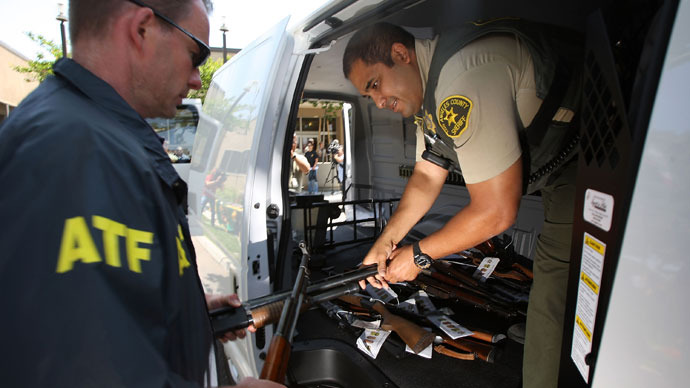A recent notice from the Bureau of Alcohol, Tobacco and Firearms reveals that the agency intends to acquire an online database capable of bringing up many of an individual’s personal characteristics and connections with just a few keystrokes.
On March 28 the federal law enforcement organization, which is a branch of the US Department of Justice, filed a solicitation notice for a “massive online data repository system” for its Office of Strategic Intelligence and Information.
The solicitation is hosted on the Federal Business Opportunities
website, where vendors and developers can offer their services to
the government in a competitive reverse auction format.
What a contractor would be tasked with, according to the ATF’s
list of intentions, is facilitating an automated system that allows
agents to “find connection points between two or more
individuals” by linking “structured and unstructured
data” about American citizens.
The Bureau asked that the database be capable of working for at
least five years.
If they get their way, ATF computer analysts will be able to
“obtain exact matches from partial source data searches”
using an individual’s age range, address, vehicle serial number, or
even a fragment of one’s Social Security number. Once that
information is deposited, the database would return with the
desired search result and that person’s known connections.
Despite the current political climate and the amount of personal
information sought for review, there’s no indication that the ATF
would use the database to follow gun sales, as current gun laws
prevent a central federal registry logging firearm
ownership.
Wired Magazine was careful to note that while the Bureau in question is “perceived as weak, stagnant, and underfunded,” law enforcement agencies already use the tactics this hypothetical database would simplify.
Investigators have long opined the time-consuming process of
seeking out a suspect’s friends, relatives and cohorts. The
solicitation reads, “Many of these tasks are performed manually,
resulting in longer turnaround times on important information and
intelligence research and analysis requests.”
The revelation comes just days after a report that ATF agents
could have stopped the so-called 'Fast and Furious' illegal gun
running project that gave Mexican drug gangs access to 1,700
automatic weapons over a nearly 18-month span.


